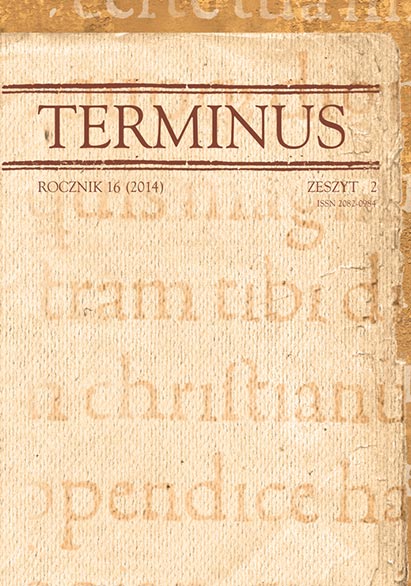Biblia brzeska na warsztacie poetów protestanckich. Słowo biblijne w poezji religijnej ewangelików XVI–XVII wieku – rekonesans
The Brest Bible as an Inspiration for Protestant Poets. Biblical Phrases in the Religious Poetry of Evangelical Protestants in the 16th and 17th Centuries. A Preliminary Survey
Author(s): Dariusz ChemperekSubject(s): Language and Literature Studies, Studies of Literature, Polish Literature
Published by: Wydawnictwo Uniwersytetu Jagiellońskiego
Keywords: Brest Bible; protestant poetry; invention; funerary poetry
Summary/Abstract: The aim of this paper is to examine the impact of the Brest Bible (its lexis and phraseology) on the religious poetry of the followers of the Evangelical Church of the Augsburg Confession in Poland and the Polish Reformed Church in the 16th and 17th centuries. The article is a preliminary study of the subject. The author analysed thematically consistent poems on death and divided them into three types: occasional poetry, represented by Cyprian Bazylik’s Short description of an affair at the death and funeral of the Enlightened Duchess Elżbieta of Szydłowiec Radziwiłłowa (Krótkie wypisanie sprawy przy śmierci i pogrzebie Oświeconej Księżny Paniej Halżbiety z Szydłowca Radziwiłowej, 1562); functional literature, illustrated with four songs from a Protestant hymnary by Krzysztof Kraiński (1609) and Andrzej Hünefeld (1646); and fine poetry, for which the author chose the The Quartan Fever Penance (Pokuta w kwartanie, written in 1652). For the Old-Polish Protestant authors of religious poetry, the Calvinist Bible is a constant reference point. It determines but by no means limits the horizons of imagination. Writing about deathly issues, the authors of occasional, high-art poetry or hymnary songs rarely borrow from the lexis of the Brest Bible and freely realize their artistic concepts. In their works there are only a few most expressive phrases and lexemes from the first Polish Protestant Bible. In the analyzed poems, Biblical phrases usually appear in the form of paraphrases, well-thought-out verses or Biblical scenes. The poets borrow words or Biblical phrases only when the described plot is scarcely known, usually drawn from a rarely referred to Old-Testament book. This gesture can be interpreted as a token of the poet’s circumspection.
Journal: TERMINUS
- Issue Year: 16/2014
- Issue No: 4 (33)
- Page Range: 431-450
- Page Count: 20
- Language: Polish

